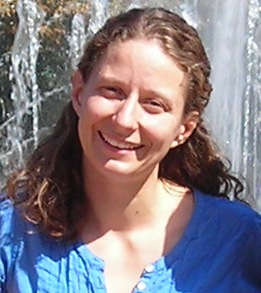 ‘What do you do?’ is a question that I sometimes dread. My job is either a conversation stopper or a conversation starter, depending on who’s asking…
‘What do you do?’ is a question that I sometimes dread. My job is either a conversation stopper or a conversation starter, depending on who’s asking…
I work at the Faraday Institute for Science and Religion in Cambridge. After my postgraduate studies in genetics I started working as a research scientist in a lab in Edinburgh. I was preparing for a move to the US to work on Parkinson’s Disease in fruit flies (as you do), but a few months into my job in Edinburgh I had a change of mind. I had been finding myself gravitating away from the lab bench, towards my desk, and realised that my passion was more for communicating science than doing experiments.
I found a new niche working for Christians in Science. This is an amazing group that draws together Christians working in all areas of science – academia, industry, and teaching, as well as students and non-scientists who are simply interested in science-faith issues. I discovered a depth of thinking about the interaction between science and faith that I hadn’t encountered before. I was challenged to confront some difficult topics – such as human evolution, use of stem cells and climate change – head on. I also met people who modelled for me how debates on sensitive issues can be conducted with grace.
It was while I was working for Christians in Science that we realised that many non-scientists in churches were looking for resources to help them think through the relationship between science and Christianity. At the time we didn’t have much to give them apart from books and academic papers. When the Faraday Institute started up in Cambridge I wanted to be part of the action, and was offered the opportunity to work on a project dedicated to developing accessible resources for churches, schools, youth groups – any context where science and faith is an issue.
Test of Faith is a collection of resources, born out of the desire to equip people to think through the challenges that science can throw at people of faith. At times the conflict is only imagined and much of what needs to be done is ‘myth busting’ or telling the stories of scientists who are Christians. But there are also some real issues that need to be discussed, such as ethics, the environment, the interpretation of Genesis, or discoveries in brain research. I’ve found it enormously helpful to have the opportunity to speak to the experts in these fields, bounce ideas off theologians and biblical scholars, and have tried to share that experience with the people of all ages who make up the Test of Faith audience.
Now that we’ve completed the Test of Faith materials I often travel around speaking to audiences in churches, schools and universities. It’s exciting to be able to challenge some of the assumptions that cause people to think that a Christian scientist must be a deeply divided, confused person. The one message that I hope people will go away with is that science and faith are friends, not foes.
One of the main things that I hope to do through this work is to encourage and equip the scientists and future scientists who will be at the front edge of ‘culture making’ in their various spheres.
This article was reproduced from the Everything Conference website, with permission.




